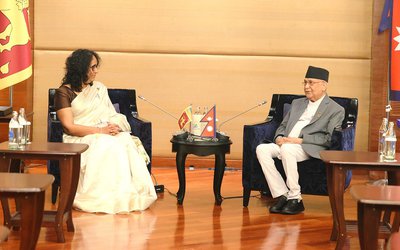Around the world, humanitarian action is saving lives and minimizing human suffering every day confronting challenges. Today over 100 million women, men and children need daily life-saving humanitarian assistance.
World Humanitarian Day was established to acknowledge the work of humanitarian workers around the world who bring assistance, relief and hope to the millions of people affected by humanitarian crises around the world. Humanitarian workers manage and develop emergency response programs, and typically operate in front line conditions, helping communities to rebuild their lives after disasters, to become more resilient to future crises, to advocate for their voices to be heard, and to build lasting and sustainable peace and development in areas hit by human or natural disasters.
World Humanitarian Day also draws attention to humanitarian needs, and to improve quality, compliances and accountability responding to humanitarian crises. World Humanitarian Day is marked every year with events held around the world. This year, under the banner of ‘One Humanity’, the UN and its partners are organizing events that will raise global awareness of the humanitarian situation and response around the world.
Nepal will also celebrate World Humanitarian Day on Aug 19, 2016. We are eager to see whether the government will repeat the rituals or enforce actions to improve humanitarian response. Following the formation of the new government, confusion has surfaced over the reconstruction of the earthquake-affected areas, particularly the distribution of housing grant.
Prime Minster Pushpa Kamal Dahal, while assuming office on the first day, Aug 4, 2016 directed National Reconstruction Authority (NRA) and other concerned authorities to take necessary steps for distributing Rs 50,000, the first installment of the grant amount to be provided to all the victims whose houses were completely damaged by the earthquakes, by the next 45 days. But the NRA has already indicated that it was not possible.
Nepal had overall good humanitarian relief from any international standards. But the post-relief was immensely slow. The establishment of NRA has not helped to expedite response. Rather the NRA was occupied in creating laws, by-laws, guidelines and regulations for the government and non-government organizations. The damage assessment survey is still incomplete after 15 months of disaster is an example of work how inefficient our response is.
We need rapid action realizing that this is not business as usual nor it’s a regular development. I urge the new government to take immediate measures:
• Address parallel structures and overlapping of authority at the center and districts among the NRA, SWC and the existing government authorities. NRA provides overall strategy, facilitation and monitoring and while the district authorities work in close coordination with DDRC.
• Direct the line ministries, departments, line agencies and established structures with fast-track additional budget do work effectively, and hold them accountable for action or inaction.
• Improve fund flow from the center to the districts. It is immensely slow now with. 45% of development budget expenses even in normal times.
• Support the works of international and national NOGs with required approvals and facilitation without bureaucracy and delays.
• Improve development space and operating environment challenged by insecurity concerns.
Change will require a steady and determined effort to do better and overcome the structures and arrangements that we have been used to for decades. We have collective responsibility to change, but the government as the agent of the State should take prime responsibility. We need to recognize the right of people to live in safety and dignity and with the prospect of thriving as agents of their own destinies.
World Humanitarian Day is another day of commitment and dedication to bring positive changes in the lives of the people affected by human or natural disasters.
Author: Dr. Prabin Manandhar is an expert of international development. Currently, he is working as Country Director of The Lutheran World Federation. He is the Chair of the Association of International NGOs in Nepal (AIN). He is also a visiting faculty at the Kathmandu University. He can be reached at prabin.manandhar11@gmail.com
- World Humanitarian Day 2024: Committing to Peace and Accountability
- Aug 19, 2024
- Nepal Investment Summit: Unlocking Economic Potentials For Growth And Development
- Apr 28, 2024
- Investing In Women: Accelerating Progress
- Mar 10, 2024
- Embracing The 'Empty Chair: Advancing Global Inclusivity And Equitable Development
- Dec 29, 2023
- Mental Health In Youth
- Jul 16, 2023















